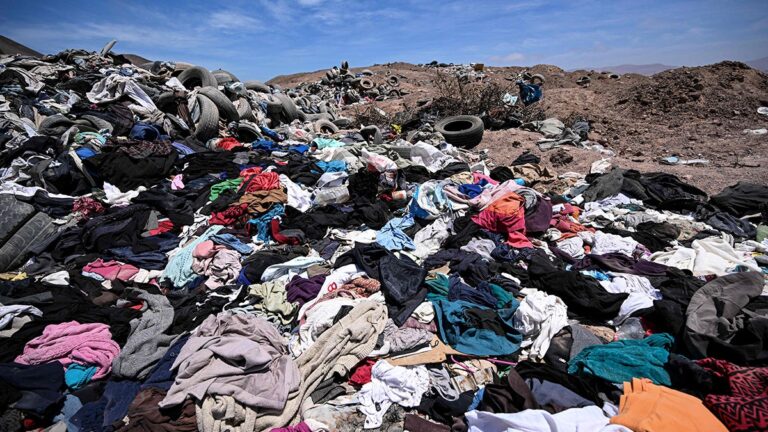To become a Vogue Business member and receive the Sustainability Edit newsletter, click here.
It’s an open secret in the fashion world: Unsold stock is sent to incinerators, surplus handbags are destroyed so they can’t be resold, and usable products are sent to landfills to avoid markdowns and flash sales. The European Union wants to put an end to these unsustainable practices, and on Monday it banned the disposal of unsold textiles and footwear.
“It’s time to put an end to the ‘take, make, waste’ model that is so harmful to the planet, our health and our economy,” MEP Alessandra Moretti said in a statement. “Banning the disposal of unsold textiles and footwear would contribute to a shift in the way fast fashion manufacturers produce goods.”
It’s part of a broader effort to tighten sustainable fashion laws, with new policies on eco-design, greenwashing and textile waste to be phased in over the next few years. The ban on destroying unsold goods will have one of the longest lead times; large companies have two years to comply, while small and medium-sized businesses have up to six years. It’s not yet clear whether the ban applies to companies headquartered in the EU or those with operations in the EU, or how the ban will affect territories outside of Europe.
For many, this is a welcome decision that indirectly addresses the contentious issues of overproduction and degrowth. While policymakers may not directly tell brands to produce less or impose limits on annual production numbers, they are penalizing companies that overproduce, which is a step in the right direction, says Philippa Grogan, sustainability consultant at EcoAge. “This has been the fashion industry’s dirty secret for a long time. This ban alone will not end overproduction, but we hope it will encourage brands to be more organised, more responsible and less greedy.”
Future explanation
There are some issues that need to be resolved, says Scott Lipinski, CEO of the Fashion Council Germany and the European Fashion Federation (EFA). The EFA is calling on the EU to clarify what is meant by “unsellable goods” and “discard.” For the EFA, unsellable goods means goods that are suitable for consumption or sale (excluding counterfeits, samples and prototypes). “Our industry is also committed to developing new methods, such as remanufacturing and upcycling, that give unsellable goods a second life and foster creative freedom, and we strongly oppose any ban that would put an end to these methods.”


